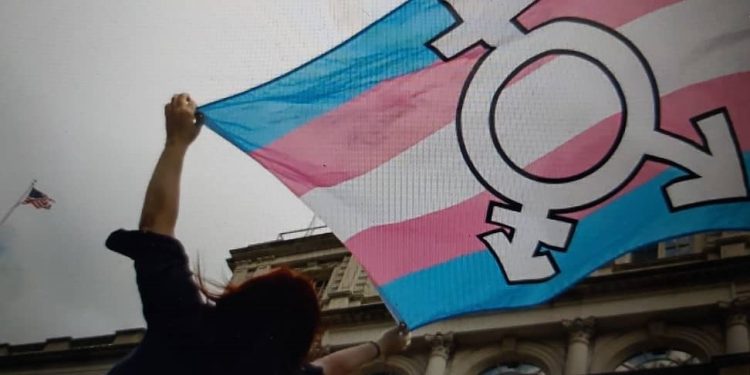Texas Governor Greg Abbot has signed another controversial bill into law that bans trans girls from playing girls’ sports. The move comes as the conservative-dominated state government is locked in legal battle over other laws that curtail the right to an abortion and to vote.
House Bill 25 became law on Monday with Abbot’s signature. The new law, which will take effect on January 18, 2022, will require student athletes to join gendered teams that correspond to the gender listed on their birth certificate at birth.
The law is intended to stop transgender youth from participating with other students of their gender, even if it has been legally changed and isn’t simply a matter of personal identification. It was passed during a special legislative session and was identified as one of five priorities by Abbott.
Anti-trans activists and politicians, like Texas Republican Rep. Valoree Swanson, who sponsored the bill, argue they are defending the gender equality created by Title IX by barring transgender girls, who were assigned male at birth, from competing against cisgender girls, who were assigned female at birth, because they regard the cis girls as innately weaker.
However, trans rights advocates argue that dichotomy isn’t backed up by science and perpetuates age-old myths of female inferiority.
Speaking of a trans woman athlete who meets National Collegiate Athletic Association (NCAA) standards, Safer said “there is no inherent reason why her physiological characteristics related to athletic performance should be treated differently from the physiological characteristics of a non-transgender woman.”
He also noted there are not simply two kinds of human – one male and one female – but wide genetic diversity in genetics, sex characteristics, and physical capabilities.
Advocates have also noted that team participation with one’s peers and the social inclusion that comes with it are far more important for children and youth, especially trans youth who may be otherwise socially ostracized.
LGBTQ Rights Becomes Part of Dem-GOP Feud
Texas is the ninth state to pass such a law in the last year, while a tenth, South Dakota, was vetoed but later implemented via executive order by Governor Kristi Noem. In two of those states, West Virginia and Florida, the laws have drawn legal challenges in court.
On his first few days in office, Biden issued dozens of executive ending Trump-era programs and policies, including those that barred trans people from military service, segregated homeless shelters by gender assigned at birth, and had replaced gender-based language with sex-based language in policies at the departments of education, health and human services, and justice. He also fully implemented Bostock v. Clayton, a Supreme Court ruling from June 2020 that found LGBTQ people to be protected by the sex-based language of Title VII of the 1964 Civil Rights Act.
Biden also restored an Obama-era order that interpreted Title IX, part of the Education Amendments of 1972 that bans discrimination against women in school-related fields, including sports, as protecting LGBTQ people from discrimination, as well. Texas’ new law flies in the face of that regulation.
According to a count in May by Human Rights Campaign, a leading US LGBTQ rights nongovernmental organization, more than 250 such bills had already been introduced, with a record 17 passed into law. Equality Texas noted earlier this month that in Texas alone, 76 anti-LGBTQ bills have been introduced this year, including 50 that specifically targeted the rights of transgender children.
Many of those bills have aroused fear and fury far outside Texas’ borders, including one that would have banned affirmative medical care for trans kids and charged parents who allowed their children to receive such care with child abuse.
The Equality Act would add gender identity and sexuality to the social categories in the Civil Rights Act of 1964, protecting LGBTQ people from discrimination in employment, housing, and access to public facilities such as bathrooms.
Texas Laws Challenged
However, HB 25 is far from the only piece of legislation Abbott has signed in recent months that has aroused fury for its restrictiveness.
An anti-abortion law signed in April but that took effect in September has grabbed nationwide attention after the Supreme Court refused to suspend it, as many expected since it seems to clearly violate the court’s earlier ruling in Roe v. Wade. That 1973 decision established the legal right to an abortion and laid out a framework for its regulation, including that no restrictions could be placed on abortions before the end of the first trimester of pregnancy, which is roughly 13 weeks after conception. Texas’ law, SB 8, bans abortions after a so-called “heartbeat” is detected, which occurs as early as five weeks after conception.
Two other bills signed into law last month redrew the state’s congressional districts, changing who votes for which seats in Congress residents vote for, and restricting the time, places, and methods by which people can vote. Critics have claimed both bills are intended to weaken the voting power of communities of color and strengthen the hold on Texas politics by whites.










Discussion about this post